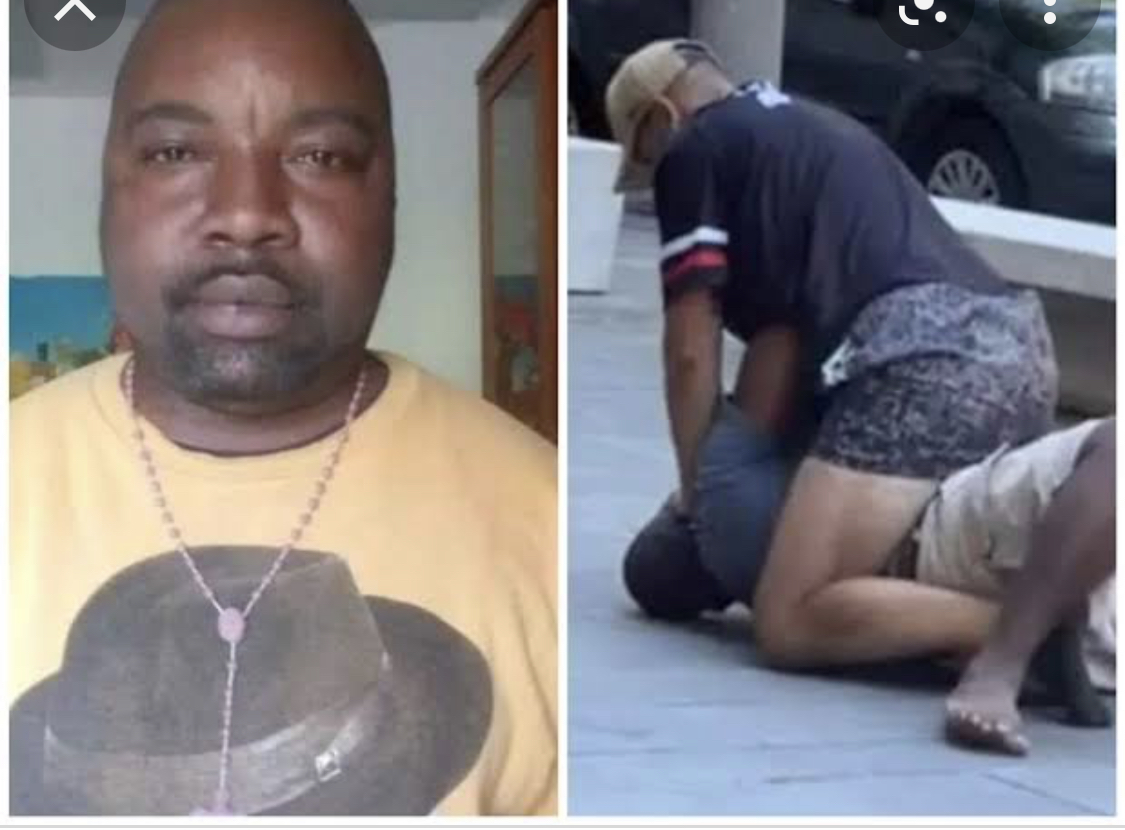The sad, sad story of Mr Alika Ogorchukwu
By Femi Olugbile
On Friday the 29th day of July 2022, an incident occurred in Civitanova Marche, a busy upmarket shopping district in the province of Macerata, Italy. An Italian man, Filippo Ferlazzo, ostensibly miffed by the efforts of a black, disabled street trader who was trying very hard to attract his attention to his wares, suddenly snatched the man’s crutch and began to hit him with it. Frightened, the disabled man abandoned his wares and ran down the road. The Italian pursued his quarry, intent on continuing the beating.
Weaving between pedestrians who were ambling past beautiful boutiques that lined both sides of the street, the disabled man continued his flight, his alarm increasing every moment.
He had been a worker in regular employment until one year ago when he was hit by a car as he rode his bicycle on the road. He could not get back to his job. He had received some Insurance compensation for his disability, but not enough to live on, or to maintain his wife and his eight-year-old son. He was forced to sell odds and ends from a tiny corner of the swank street. Passers-by stopped to talk with him sometimes, and he would show them photos of his family. Occasionally, a kind Italian would give him a present for his little boy. He had been in Italy for more than ten years. Shortly after his arrival, he had met his wife Charity, a fellow Nigerian, in Prato. One thing led to another, and they became man and wife. They moved to the Marche region and settled in an apartment above a marble workshop. Charity had a cleaner’s job at the local train station. She gave birth to a boy after two years. Things appeared to be going on well, until the accident with the car. To make ends meet, he began to sell small household items on the sidewalk.
Laura Latino ran a beachwear boutique on the street. She was out at lunch, and the shop was closed.
In front of Laura’s shop, Fillipo caught up with the limping man. Throwing his body upon him as the other man screamed in terror, he wrestled him to the ground and rolled him over. Then Fillipo got a grip on the Nigerian’s throat and began to throttle him.
Around them, people were still passing by Laura’s shop. Some stopped to watch the drama. Some brought out their smart phones and began to record the strange scene. One or two feebly admonished Fillipo to stop.
In broad daylight, over several long minutes, in full view of Italian citizens, Alika Ogorchukwu was strangled to death during the lunch hour.
It was, irrespective of all the rationalisations that have followed the incident, a lynching on a par with the nine minutes George Floyd spent before he expired under the knee of Derek Chauvin in Minneapolis, USA.
Before even examining the motives of Mr Ogorchukwu’s murderer, and before looking at the reaction, or lack of it, of the Nigerian government, especially its Foreign Ministry, which is headed by a man who has shown himself to be clueless and colourless when it comes to ‘getting the back’ of Nigerian citizens abroad, it is instructive to examine the behaviour of the Italian audience in the fatal drama. The ‘Bystander Effect’ is a well-recognised fact of human Psychology. It describes a natural reticence of an individual to intervene to stop a bad situation when in a crowd because responsibility is diffusely shared with other people, whereas if the individual were to be alone in encountering the bad situation, he would be more likely to intervene. Is ‘Bystander Effect’ enough to explain why Italian citizens passed by or stood watching while Fillipo strangled the life out of Alika over several minutes? What would the reaction have been if the black man had been the one throttling the white man to death? Or even if it had been one white man strangling another white man on the pavement?
When Italian Police and government officials say the tragedy had nothing to do with racism, they miss a crucial point, which is about the Italians themselves who allowed Alika to be killed in hate in their presence. They should be looking at themselves in the mirror, and asking questions of themselves, instead of sounding as if they are being unjustly accused of racism.
A lot has happened since Alika’s lynching, and a lot that should have happened has not happened. The Italian Ambassador to Nigeria has not been summoned to the Foreign Ministry in Abuja to express the outrage of the Nigerian people over the public murder of a Nigerian. The Nigerian embassy in Italy has made a vague offer of support to Charity as she seeks legal redress, but it has carefully avoided saying anything that might upset the Italians. There have been demonstrations of support by Nigerians in Italy for Charity and her son, who are rightfully sceptical about the official excuses of ‘mental illness’ and ‘provocation’ for Fillipo’s behaviour, but who do not want to ruffle Italian feathers, since they want Fillipo convicted, and they want to continue to live in Italy. On the other hand, there has been at least one national protest by the growing community of black Italians, who see Alika’s death, along with a number of other such incidents, as expressions of growing racism and the political ascendancy of right-wing, anti-immigrant hatred in the country.
A core value-proposition attached to the possession of an American passport is the knowledge that America will go beyond making mealy-mouthed pronouncements and stand ready to go to war, if necessary, in defence of any of its citizens abroad. It is a deterrent to foreign governments and peoples who may be tempted to trample on the rights of American citizens anywhere.
It is a good point to ask – what is the value of a Nigerian life, really?

